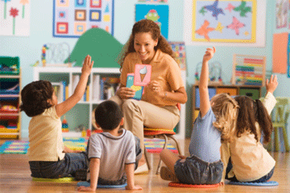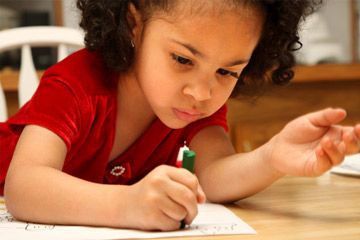Deciding when to send your child off to full-fledged school can be an agonizing process. Will he fit in with his peers developmentally? Is she supposed to be able to read? Write? Conjugate? What if she's the only one who doesn't like to share and no one wants to play with her? Is it more beneficial to start early or start late? Does it even matter?
Real quick: She needn't know how to conjugate.
Advertisement
Aside from that, it can sometimes be unclear exactly which skills a 5-year-old needs to succeed from the outset. All parents want their children to begin official schooling on the right foot -- a kindergarten experience can affect the rest of their school career. It's where they really start to learn what it is to succeed or fail academically, and no one wants to tip the scales toward the latter.
So how do you know when to start? Is it simply a matter of age, or are there other, more subjective criteria to consider?
People differ on their viewpoints regarding the best time to enter school, but there are certain guidelines that can greatly help in the decision-making process. Some are subjective, and some are more concrete. The concrete ones, of course, are easier to navigate, so let's start there: What does the school district think about when your child should start the big K?
Advertisement



